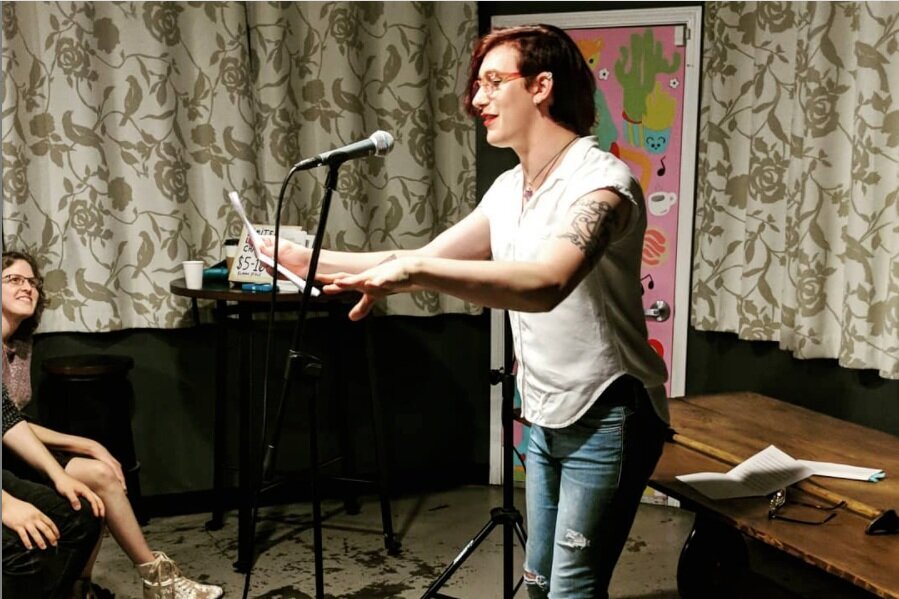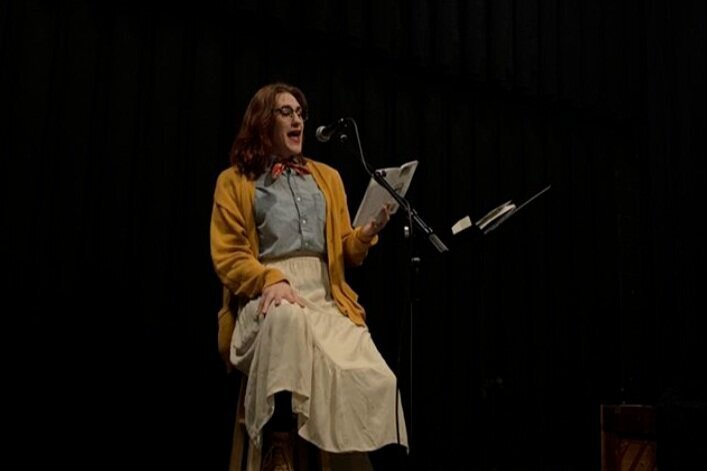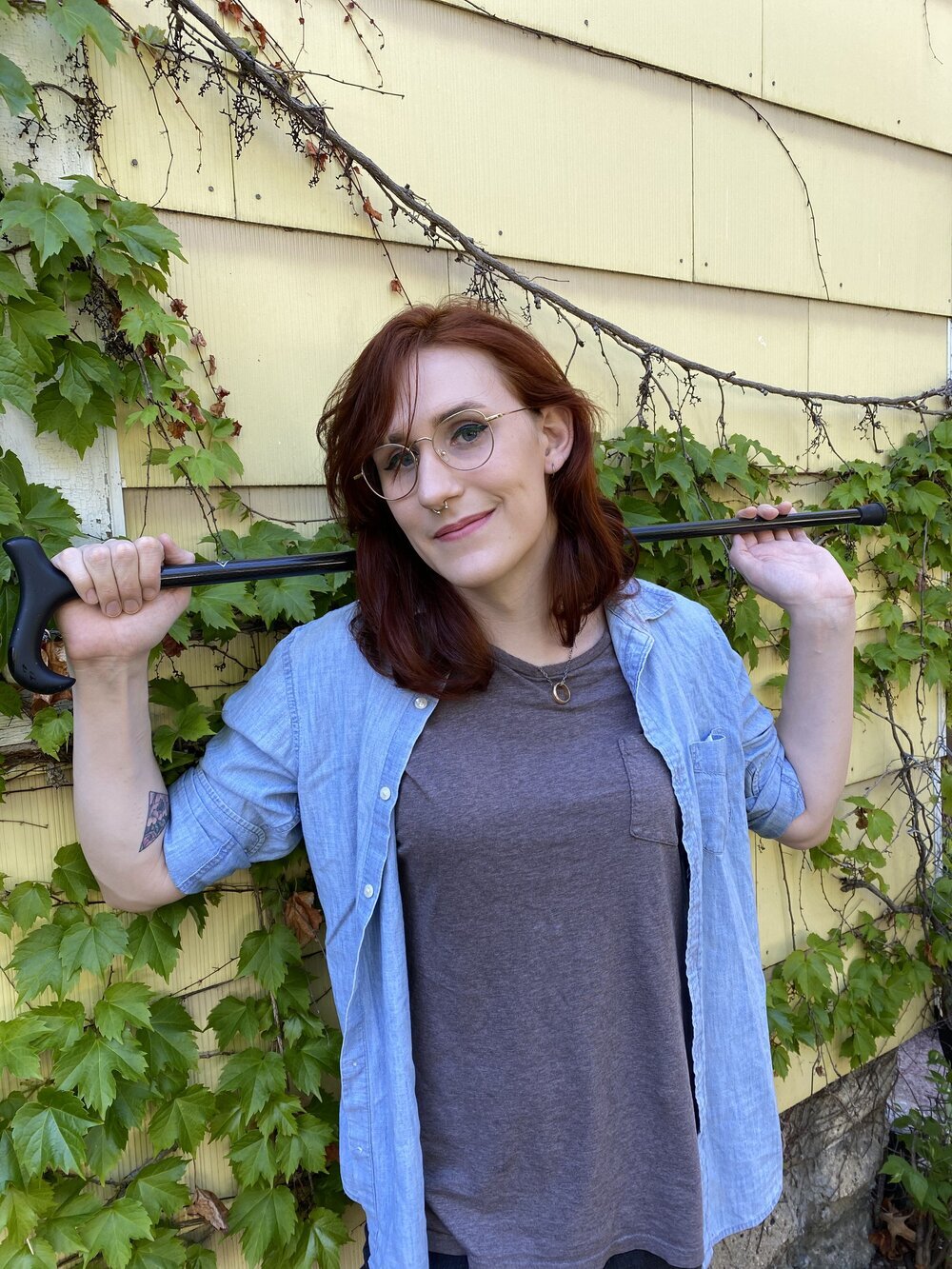torrin a. greathouse
torrin a. greathouse is a transgender cripple-punk poet and essayist. She received her MFA in creative writing from the University of Minnesota. Their work has been featured in Poetry Magazine, The Rumpus, the New York Times Magazine, Ploughshares, and The Kenyon Review. She has received fellowships from the National Endowment for the Arts, the Effing Foundation for Sex Positivity, Zoeglossia, The Ragdale Foundation, and the University of Arizona Poetry Center. She is the author of DEED (Wesleyan University Press, 2024), and Wound from the Mouth of a Wound (Milkweed Editions, 2020), a finalist for the Minnesota Book Award, CLMP Firecracker Award, and winner of the 2022 Kate Tufts Discovery Award. She teaches at the Rainier Writing Workshop, the low-residency MFA program at Pacific Lutheran University.
SELECTED PUBLICATIONS:
POETRY: “Belt Is Just Another Verb for Song,” Poem-A-Day
POETRY: “Aubade Beginning in Handcuffs,” Poetry Magazine
POETRY: “When My Gender is First Named Disorder,” New York Times Magazine
POETRY: “An Ugly Poem,” Washington Square Review
POETRY: “SICK4SICK,” Academy of American Poets
INTERVIEW: “Poetry Escapes The Beauty Bind In 'Wound From The Mouth Of A Wound',” NPR
ESSAY: "The Constituent Parts," The Rumpus
works:
Wound from the Mouth of a Wound
Milkweed Editions, 2020
boy/girl/ghost
TAR Chapbook Series, 2018
Therǝ is a Case That I Ɐm
Damaged Goods Press, 2017


Topics addressed in readings
Disability & embodied poetics
Trans identity
Intergenerational trauma & traumatic memory
Mythmaking
Etymology & language histories
Poetics & politics of desire
Workshop pedagogy
SAMPLE WORKSHOP 1: the poetics of renaming
To paraphrase the critic Pamela Annas, “[We] rename [our]selves by working out of, rebelling against, disobeying, contradicting old names rather than simply discarding them. I think you cannot rename without unnaming.” The act of poem-making often calls for us to fundamentally alter both ourselves and the world, via naming and unnaming, to create something new—the clarity of an image, the alchemy of a metaphor, a habitable world. We will be examining the various forms this unnaming and renaming takes, and how, for many poets, this process is also one intrinsic to survival.
SAmple workshop 2: Dis(re)membering the Past
Memory is not linear, but fragmentary and recursive. Our recollection is full of gaps and mistakes—though particularly in the vicinity of trauma. In this generative workshop we will be exploring poems that enact and embody this process of memory. Then, writing toward our own potential dis(re)membering.
TESTIMONIALS
“Wound from the Mouth of a Wound is a remarkable excavation, multitasking in the best and most unforgettable ways. This collection attends to both beauty and “the ugly of my tongue / lolling serpent curled in the slick of my jaw,”—presenting visionary meditations and diagramming maps across the galaxy of a body, all while serving others as a guide or oracle. In these pages, the fragments and fusion of public and private desires dig into exhilarating terrain I didn’t quite realize I had been thirsty for all along. The everlasting and intimate result of this book feels like we’re holding a small thunderstorm in our hands.”
“In her collection boy/girl/ghost, torrin a. greathouse takes us on a journey to find softness, to find malleable understandings of language and of the selves who use that language, “i am searching for a soft poem in this mouth.” The poems in boy/girl/ghost implore us to question fixed forms, to see the danger inherent in confinement, in forcing the self to shrink in order to survive within rigid, socially imposed containers, “i took a pencil to my leg & tried / to see how much of myself i could erase.” Through stunning formal innovation, greathouse’s poems themselves become testaments to the freedom and power that come from sloughing off these constraints. Her poems become maps to new landscapes in which there is space enough to breathe.”







